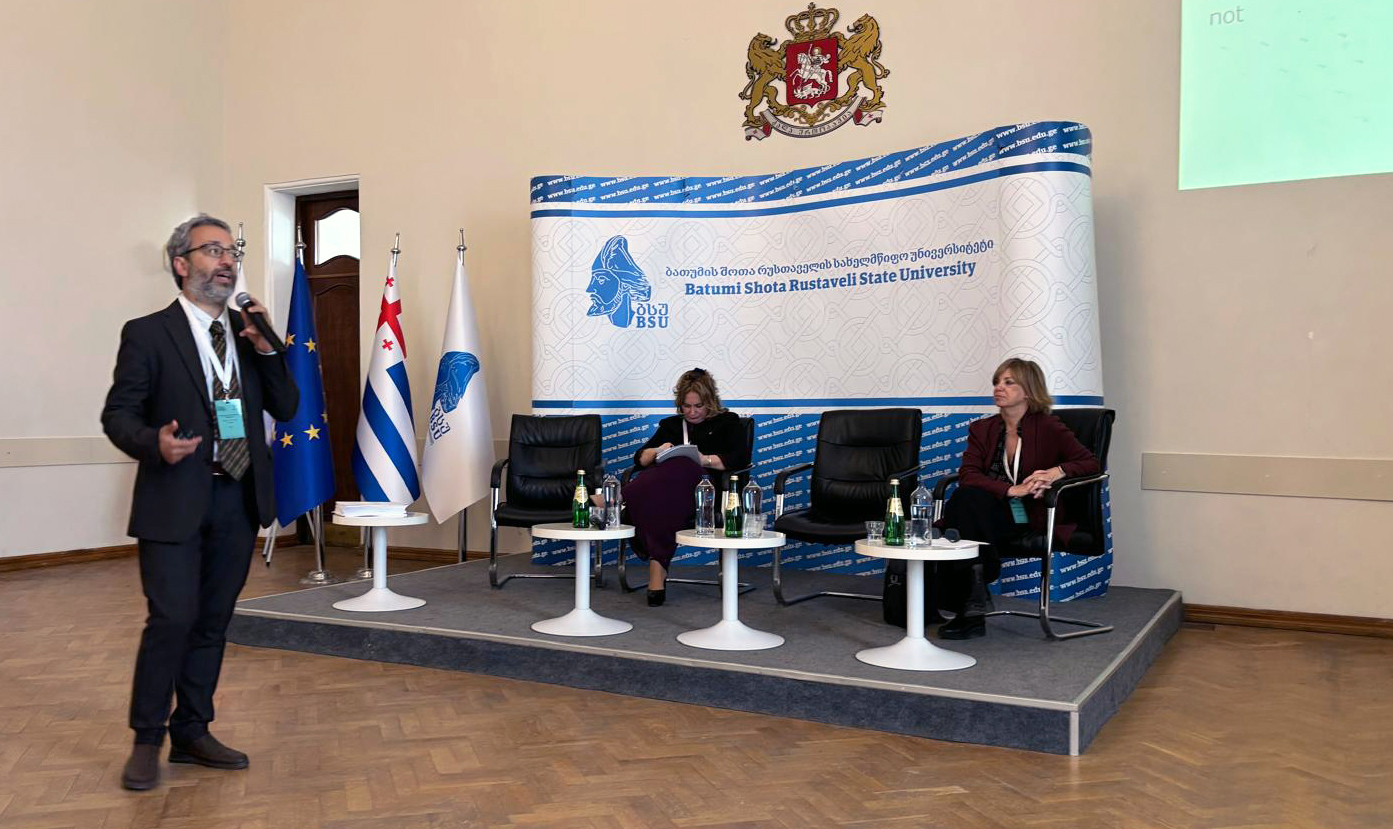
The director of the Catalan Data Protection Authority, Meritxell Borràs, has presented to Georgia the Catalan model to facilitate the preparation of impact assessments on fundamental rights in the use of artificial intelligence (FRIA), one of the obligations incorporated in the Artificial Intelligence Regulation (RIA) when a certain product and service exists that may represent a high risk to people.
She presented it within the framework of the celebration of the 33rd European Conference of Data Protection Authorities, the so-called Spring Conference, and accompanied by the expert of the European Data Protection Committee and professor of Private Law and holder of the Jean Monnet Chair of Mediterranean Digital Societies and Law at the Polytechnic University of Turin, Alessandro Mantelero. He has led the working group in which this pioneering model in Europe has been developed, within the community of data protection delegates 'DPD en network' promoted by the Authority.
This is the first model that develops a FRIA assessment applied to real use cases. Specifically, in projects in areas such as human resources, medical research, social services and education that use artificial intelligence and that may represent a high risk. Thus, the assessment has served to identify risks in order to mitigate them, and serves as a starting point when guiding developers and promoters of artificial intelligence systems (AIs) in the design of ethical applications that respect fundamental rights.
In front of representatives of more than sixty European institutions linked to data protection, Borràs assessed the reception that the Catalan FRIA model has had very positively, and assured that there are many entities that are incorporating it into their AI governance plans, such as the Generalitat de Catalunya.
The director recalled that poor design and use of AI entails risks for individual rights and for the very foundation of democracy, and recalled that the APDCAT has been designated as one of the authorities for the protection of fundamental rights within the framework of the AI Regulation.
Borràs highlighted that the first group of the ‘DPD en xarxa’ community focused precisely on analyzing the FRIA impact assessments. And it did so from the leadership of expert professor Alessandro Mantelero, thanks to the active participation of eleven data protection delegates from various areas of the public and private spheres.
As a result of this collaboration, Borràs highlighted that this pioneering FRIA model template has been developed, which can be used by both AI providers and AI deployers to assess the impact on fundamental rights in the design and development of their AI solutions.
On the other hand, Alessandro Mantelero explained this Catalan model in detail. He assured that it provides concrete answers to questions that interest people most in relation to artificial intelligence: how rights are protected and what is the impact of an AI solution. Thus, without an adequate implementation of this rights-centered perspective, AI will only be a technological tool that will not incorporate the fundamental values of our society, and, therefore, will be rejected or will lead us to dystopian scenarios, he added.
Agreement to access traceability of medical records
On the other hand, the APDCAT has also actively participated in the Spring Conference in another panel, where the head of the Legal Department, Xavier Urios, has shared the key points of the agreement reached by the Authority with the GAIP to resolve requests for access to traceability of citizens' medical records.
33rd Spring Conference
The Spring Conference is the annual meeting that brings together representatives of more than sixty data protection authorities from across Europe every spring. The objective is to address issues of mutual interest, and share concerns regarding emerging trends and innovative advances in the field of privacy and data protection, both in Europe and from a global perspective.
The meeting aims to strengthen relations between institutions across Europe, foster collaboration between entities and professionals working in this field, and foster the exchange of knowledge and debate on best practices in privacy protection.
The director of the Catalan Data Protection Authority, Meritxell Borràs, and expert Alessandro Mantelero have presented the Catalan model for the evaluation of fundamental rights in the use of AI in Georgia, at the 33rd European Conference of Data Protection Authorities, before representatives of institutions that ensure the protection of privacy throughout Europe.




 Contact
Contact

